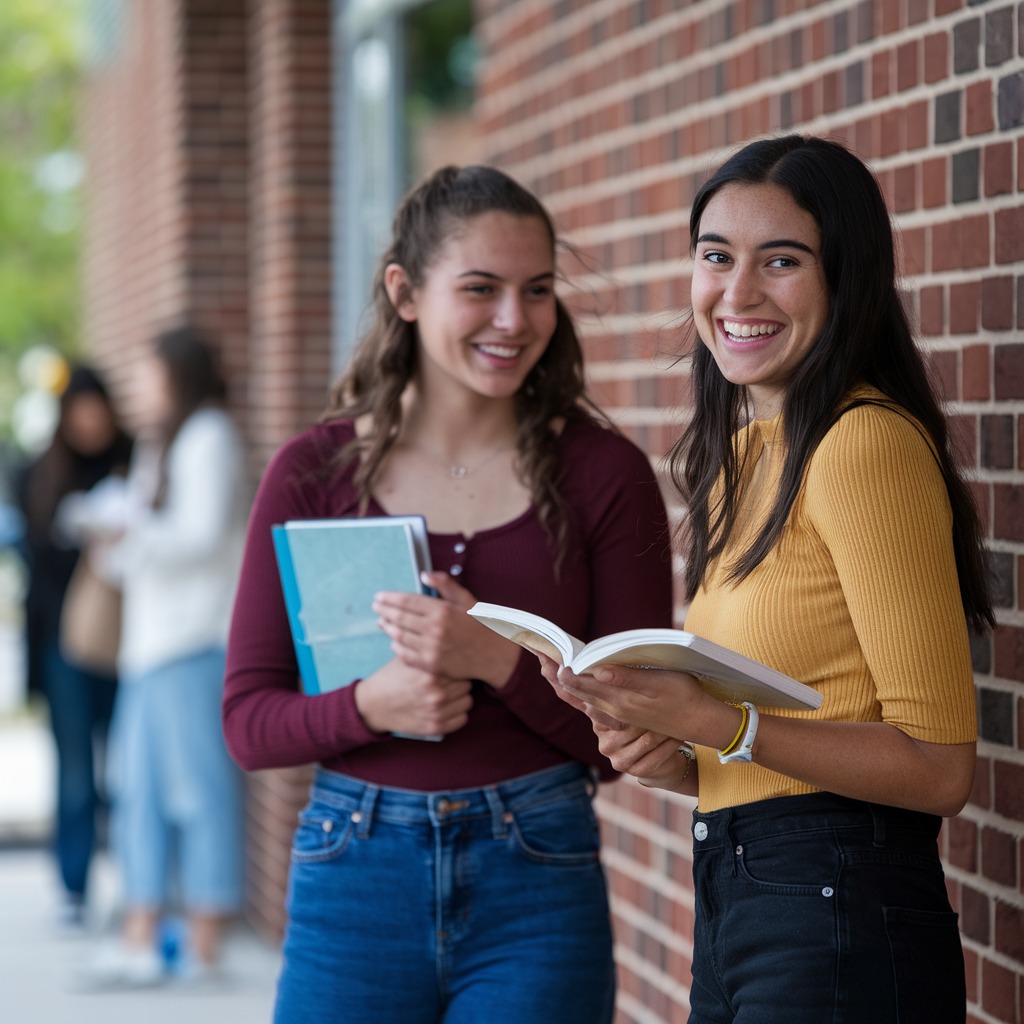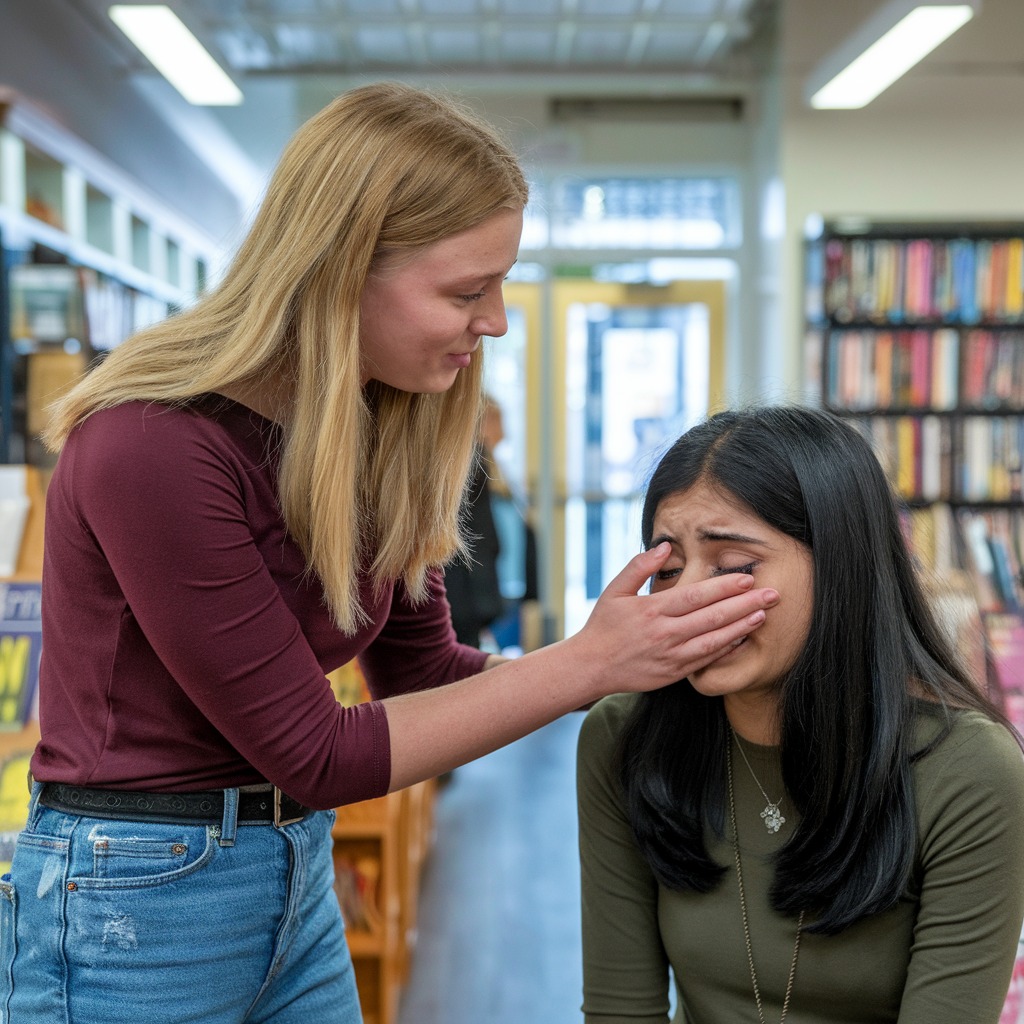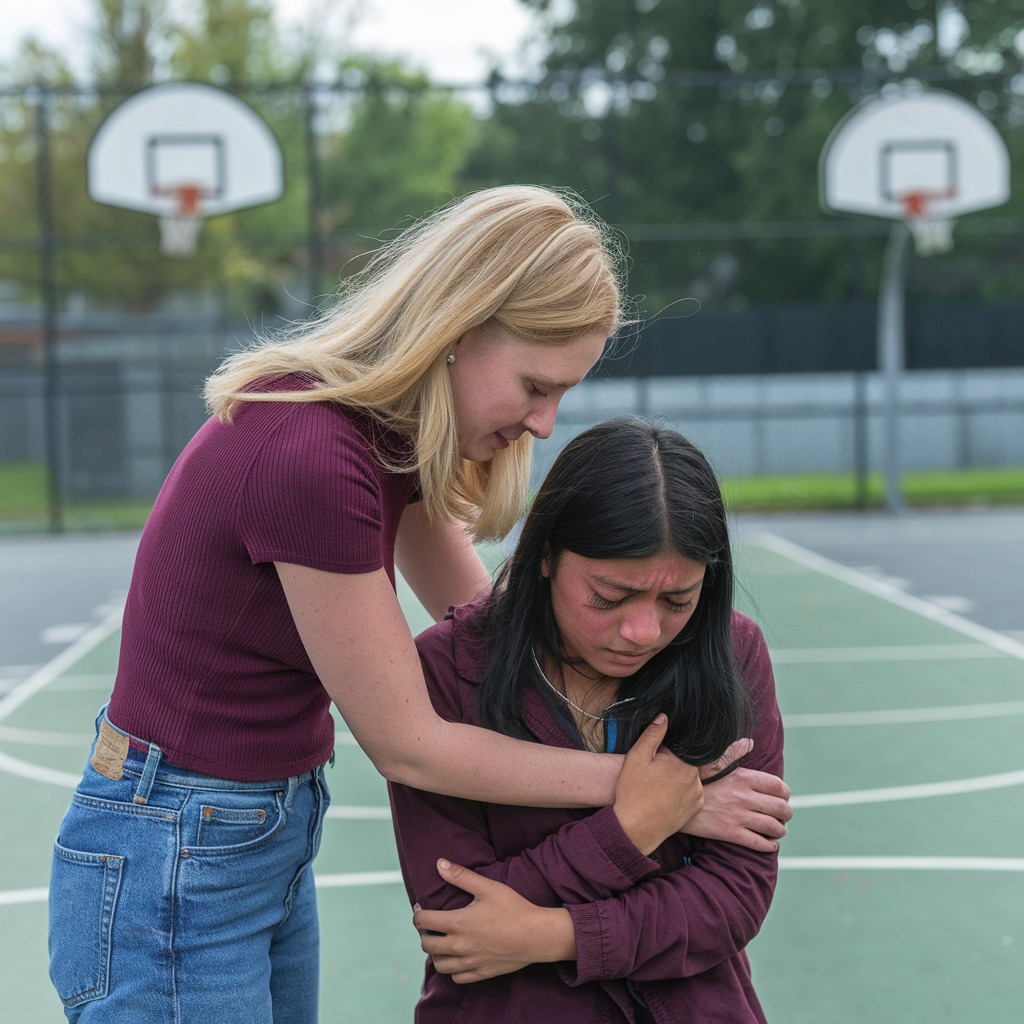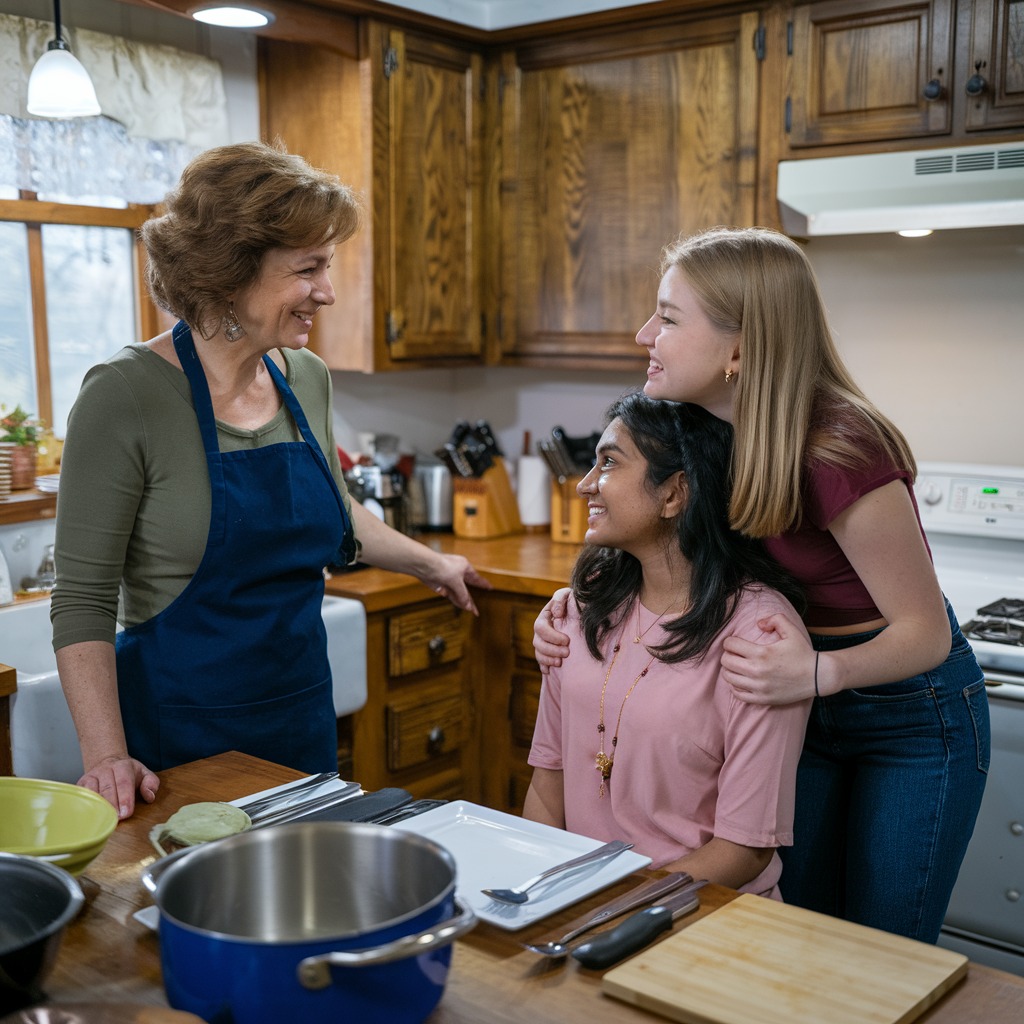My Mom Always Hated My Best Friend—When She Finally Told Me Why, My World Turned Upside Down
When I asked my mom why she always seemed so cold toward Emily—my best friend—her answers were vague at best. But when she finally revealed the truth, I was utterly shocked. The secret not only changed the way I saw Emily but also forced me to confront things about her past that I had never dared to imagine.
Emily and I had been best friends since we were kids. We were inseparable—study sessions, summer vacations, and tough times, Emily was always there for me. She was like the sister I never had. But one thing always bothered me: my mom never liked Emily.
Whenever Emily came over, my mom would keep her distance, her subtle discomfort impossible to ignore. When I asked her why, she’d brush me off with a dismissive reply, “You wouldn’t understand. Just trust me.”
She never gave me a clear explanation. But her coldness lingered, making me uneasy, especially since Emily had done nothing wrong.

As I grew older, the tension between my mom and Emily became more apparent. No matter how friendly Emily tried to be, my mom’s indifference never wavered. Whenever Emily visited, my mom would find excuses to leave the room or avoid interacting with her altogether.
Once, frustrated by my mom’s behavior, I confronted her. “Why do you act like this every time Emily is here?”
“Can’t you see I’m uncomfortable?” she replied curtly.
Her answer left me confused. Emily had never done anything to upset her, so why was my mom so dismissive?
Things took a stranger turn when Emily invited me to sleep over at her house. Excited, I told my mom, expecting her approval. Instead, her response was immediate and chilling: “No! I don’t trust her family.”
Her words made my blood boil. I threw my backpack to the floor, glaring at her in disbelief. “What does that even mean? Emily is my best friend!”
Mom crossed her arms, her face emotionless. “So what? I don’t want you setting foot in that house, and that’s final.”
I couldn’t believe what I was hearing. “You don’t even know her family! How can you say something like that? Don’t you see how unfair you’re being?”
Her expression hardened, her eyes sharp. “I don’t need to know them. My instincts are enough to forbid you. And if you were smart, you’d understand.”

Anger surged through me. “Your instincts? That’s your reason for hating Emily without any proof? You’re judging her for something she hasn’t done!”
Her voice turned icy and firm, cutting through my frustration. “I’m doing this to protect you.”
I stepped closer, my voice nearly a shout. “I’m not a child anymore, and I deserve to know the truth! If you don’t have a valid reason, I won’t listen to you anymore.”
My mom clenched her fists, her eyes glistening with restrained emotion. “I don’t owe you an explanation! But if you insist on being stubborn, one day you’ll regret not listening to me!”
The room fell into an uncomfortable silence. I felt an invisible wall rise between us, blocking any chance of understanding each other.
Finally, I turned and stormed upstairs, my throat tight with unspoken words. “If you won’t tell me the truth, I’ll find out on my own. And when I do, you’ll see how wrong you were to hate someone who doesn’t deserve it.”
Behind me, I heard her let out a heavy sigh but say nothing more. I knew I had ignited a battle far bigger than I realized, but I couldn’t keep living in the dark. I was determined to uncover the truth, no matter what it might be.

During this time, I began to notice something strange: Emily rarely talked about her parents anymore, and when I asked, she would often dodge the question or change the subject.
Emily used to be very open about her family. In the early years of our friendship, she often shared stories about how caring and loving her parents were. She once excitedly told me about the time her dad stayed up all night helping her finish a craft project, or how her mom baked cupcakes for her school party.
Her parents were also actively involved in volunteer work. Emily had proudly said, “My mom tutors underprivileged kids for free, and my dad helps build playgrounds in the community.”
But recently, those stories had disappeared. Whenever someone mentioned her parents, she would quickly change the subject or give vague responses.
Emily’s recent birthday deepened my suspicions. A few days earlier, she had eagerly invited me and some friends for a sleepover. But when we suggested hosting a small party at her house for her birthday, she flatly refused.
“No, that’s not necessary,” Emily said quickly, her voice awkward. “The house is kind of messy, and my parents have been busy lately and need quiet to work.”
She paused, her gaze flickering with unease. “Why don’t we have the party at the park instead? It’ll be more fun that way.”
She smiled, but the tension in her voice betrayed her uneasiness. I didn’t press her, but I couldn’t help wondering: What was going on with Emily?

The next day was Emily’s birthday, and as usual, I came to school ready to wish her a happy birthday during the break. But by the end of first period, Emily still hadn’t shown up. Looking around the classroom, I turned to ask some of our classmates, “Where’s Emily? Has anyone seen her this morning?”
A few shakes of the head and murmurs followed. “She didn’t come to school?”
I began to worry. Emily wasn’t the type to skip school without letting someone know, especially not on her birthday.
When the bell rang for break, I stepped into the hallway and tried calling her. But just as I dialed her number, my phone buzzed with an incoming call from an unknown number.
“Hello?” I answered, a strange feeling creeping up my spine.
On the other end was a trembling, nervous voice. “Are you Emily’s friend? This is her mother. I’m calling because Emily ran away from home last night, and we don’t know where she is. Do you know anything?”
I froze. “Ran away? No… I don’t know anything. But have you tried calling her? Maybe she’s just somewhere—”
“I’ve tried,” her mother interrupted, her voice cracking. “She’s not picking up. I’ve also contacted the school, and they said she didn’t come today. Can you help us find her? We’re very worried.”
I swallowed hard, trying to keep my voice steady. “I don’t know where Emily is, but if I find her, I’ll let you know immediately.”
“Thank you. Please, if you see her, tell her to come home. No matter what’s going on, we just want her back.”
After hanging up, I called Emily repeatedly, but each time, the phone rang unanswered before going to voicemail. I sent her several texts, hoping she would respond, but there was no reply.
After school, I decided to look for Emily at the places we usually went. I started with the café near school where we often did our homework, but there was no sign of her.
Next, I checked the park where she liked to jog in the afternoons, but it was empty.
As night fell, my heart grew heavy. I was about to give up when I remembered another place—the bookstore. Emily and I often spent weekends there reading comics.

When I entered the bookstore, I scanned the aisles. In the farthest corner, where it was usually quiet, I saw a figure curled up, leaning against a shelf. Her shoulders trembled slightly, and as I approached, I realized it was Emily.
“Emily!” I called softly.
She looked up, her eyes red and swollen. Panic flashed across her face. “What are you doing here?”
“I’ve been looking for you,” I said, sitting down beside her. “Your parents called me. They’re really worried about you. What are you doing here? Why aren’t you at home?”
Emily turned away, her voice barely a whisper. “I don’t want to go back.”
“Why not?” I asked gently. “It’s your birthday today. Your parents are waiting to celebrate with you.”
Emily shook her head, tears streaming down her face. “I can’t go back… I don’t want to be there anymore.”
“Why, Emily? I don’t understand. What happened?” I asked.
She stayed silent, her body wracked with sobs. I placed a comforting hand on her shoulder. “Emily, whatever’s going on, you can tell me. I’m here for you. But you can’t just sit here forever. If you’re not going home, what’s your plan?”
Emily shook her head again, her eyes filled with despair as she looked at me. “I… I don’t know. But I can’t go back. Please, don’t make me.”
“Emily,” I said seriously, “you need to go home. I want you to be safe.”
She sobbed harder but still refused to explain. “I just need some time alone. Please, go home. I’ll go back later.”
I stared at her, torn between pushing her further and respecting her space. “Alright. Promise me you’ll go home.”
Emily lowered her head, saying nothing. Reluctantly, I left the bookstore, my heart heavy with worry.
When I arrived home, my mom asked me to grab some clothes from her room to take to the laundry. As I walked in, a piece of paper sticking out from her drawer caught my eye. I moved closer and unfolded it—it was an old newspaper article. My eyes scanned the headline, and my heart stopped: “Two Kidnappers Arrested for Keeping Children in a Secret Basement.”
The picture printed below showed none other than Emily’s parents being taken away by the police.
I froze, unable to process what I was seeing. Grabbing the newspaper, I ran to the living room and confronted my mom. “Mom, I need to know the truth. What is this? Is this why you don’t want me to be friends with Emily?”
Her face paled as she saw the paper in my hand—the secret she’d kept hidden for so many years. After a long silence, a heavy sigh, and visible hesitation, she finally spoke. “Alright. If you must know, I’ll tell you.”
She explained that Emily’s family used to live in a distant area about 20 years ago. Back then, her parents had been convicted of illegally holding two children in a hidden basement. The family became the focus of negative attention in their community and served five years in prison. After their release, they moved to our neighborhood to escape their past and try to start over.
“From the moment I learned this, I never wanted you to be involved with Emily. Her family has too much baggage,” Mom said, her tone grave.
I felt like the ground beneath me was crumbling. I couldn’t believe that my best friend was tied to such a horrifying story.
The next day, Emily came back to school. She looked exhausted, her eyes swollen and red.

I watched her throughout the day, worry filling my chest. By the end of the school day, I knew I needed answers. I decided to confront her and asked her to meet me at the school’s empty basketball court.
After a moment of hesitation, I finally asked, “Emily, yesterday I read a newspaper article… it mentioned something strange. Were your parents involved in a kidnapping case years ago?”
Emily turned pale, her eyes widening in shock. She looked at me, then dropped her gaze to the ground. A few moments later, she burst into tears. I gently embraced her, waiting patiently until she was ready to speak.
After about 15 minutes, Emily finally began, her voice trembling. “Yes,” she said. “I only found out recently. My family went back to our old town, and one of my relatives yelled at my parents, calling them monsters. I didn’t understand, so I looked them up online… and I found the truth. That’s why I ran away yesterday—I couldn’t face it.”
She paused to wipe her tears and continued. “Late at night, I decided to go back home, thinking my parents would be asleep. But when I got there, they were still awake, sitting in the living room, waiting for me.” Her voice cracked, and she took a deep breath before continuing.
“I asked them why they did such a horrible thing, and my mom told me everything. She said she had always struggled to have children. After years of treatments and heartbreak, she finally got pregnant, but… she miscarried after three months. The pain was unbearable, and one day, in her desperation, she kidnapped two children and brought them home, pretending they were her own. By the time my dad found out, it was too late—the police were already at the door to arrest them.”
Emily looked at me with tear-filled eyes, searching for an answer. “Lena, what do you think? Now that you know the truth, will you still be my friend?”
I held her trembling hands and met her gaze. “Emily,” I said softly, “what happened back then doesn’t define who you are. You’re my friend, and that hasn’t changed. You didn’t do anything wrong. Your parents’ story is painful and complicated, and it sounds like they’ve tried hard to atone for their mistakes.”
I continued, “You told me they’ve been volunteering and helping children in need, right? That shows they’ve tried to make amends. The past is in the past. What matters now is how we move forward.”
Emily was silent for a moment, then nodded, a faint glimmer of hope returning to her eyes.
That evening, I told my mom the full story—Emily’s parents’ heartbreaking past, their efforts to change, and the pain Emily had endured after learning the truth.
When I finished, Mom sat in silence for a long time. Her face was stern, her eyes distant as though lost in deep thought.
“I… I didn’t know the story behind it all,” she said slowly, her voice heavy with emotion. “As a mother, I can understand the despair of losing a child you fought so hard to have. Perhaps that pain drove them to make terrible decisions.”

From that day on, my mom began to change her perspective on Emily. She no longer avoided or acted coldly toward her. While she kept some distance at first, her actions carried a newfound sincerity.
One afternoon, when Emily came over, my mom greeted her warmly for the first time. “Hello, Emily. It’s been a while. How was school today?”
Emily looked startled but quickly responded politely. For the first time, I noticed that my mom’s eyes no longer held suspicion or unease.
After Emily left, Mom turned to me and said, “Your friend is a good kid. I can see she’s trying hard to overcome everything.”
I knew my mom hadn’t completely let go of her earlier concerns, but I appreciated her effort to understand and accept Emily.
This story draws inspiration from real-life events and individuals, but it has been adapted and fictionalized for creative expression. Names, characters, and specific details have been altered to protect individuals’ privacy and to enhance the storyline. Any similarity to real persons, living or deceased, or actual events is coincidental and unintentional.

